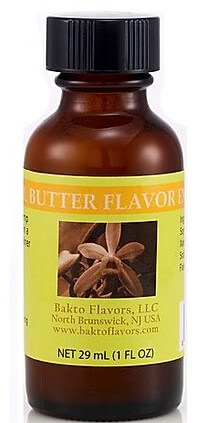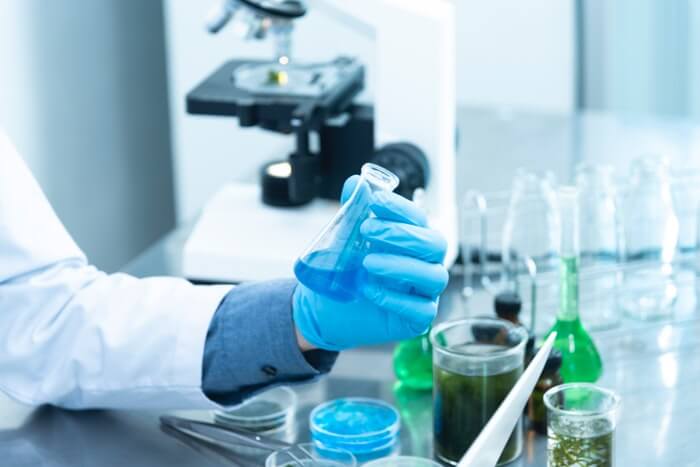You see it on coffee, packaged foods, soups, protein powder, and more…“Artificial Flavors”.
Is this one of those sneaky non-vegan ingredients that you need to avoid, or can you actually eat artificial flavors with a good conscious?
It’s rather frustrating since all the ingredients label says is “artificial flavor,” and never expands on what that artificial flavor is.
Long story short, artificial flavors are vegan-friendly.
Table of Contents
What Artificial Flavors Are Made From

I really think it’s useful to understand the core reason behind this.
Here’s a snippet from food labeling regulations for natural and artificial flavors. This is for the United States, but I imagine this particular set of definitions is pretty standard around the world.
The term artificial flavor or artificial flavoring means any substance, the function of which is to impart flavor, which is not derived from a spice, fruit or fruit juice, vegetable or vegetable juice, edible yeast, herb, bark, bud, root, leaf or similar plant material, meat, fish, poultry, eggs, dairy products, or fermentation products thereof.
Basically, “artificial flavor” can only refer to products not made from any typical plant or animal product.
By definition, artificial flavors can’t be derived from what we typically think of as food (that would be considered a “natural flavor.” In other words, artificial flavors are synthetically created.
How Artificial Flavors Are Made

With natural sources off the table, that just leaves sources like petroleum as options, as well as just synthetically creating chemicals in a lab.
For example, artificial strawberry flavor is actually methyl cinnamate, which is made using cinnamic acid and methyl alcohol.
Some of these processes aren’t the most environmentally friendly (e.g. using petroleum by-products), but they are vegan.
Are Artificial Flavors Tested on Animals?
The one concern is that artificial colors could be tested on animals. However, from what I’ve found, it’s not common. Most seem like they are tested initially, and then not again once deemed to be safe.
However, certain flavors like diacetyl (butter flavor) have been tested more than others because of safety concerns.
So this is kind of tricky. The vast majority of artificial flavors don’t seem to be tested much (if at all) on animals based on the lack of evidence I’ve found, but there are a few (out of hundreds) that are.
I think that most vegans will feel like it’s reasonable to consider artificial flavors to be vegan, but I could certainly see some not feeling that way.
Artificial flavors are often tested on animals when they’re first invented. However, once safety regulations are met, there’s no reason for continued testing, so it comes down to whether or not you want to exclude any product that was once tested on animals (a lot of products fall under this category).
Are All Varieties of Artificial Flavors Vegan?
Now we know that if you see “artificial flavors” on an ingredient list, most will consider it vegan.
But what about “artificial beef flavor” or “artificial chicken flavor”?
You’ll often see these in foods like ramen.
These artificial flavors aren’t any different from other artificial flavors, it’s just more specifically labelled. However, you still want to check the ingredients for any animal products.
While you still might want to double-check certain ingredients you see, it’s usually safe to assume “artificial” ingredients are vegan-friendly.

If an “artificial flavor” is derived from petroleum, it should not be considered vegan in my opinion. A core tenet of veganism is conservation and environmental sustainability, and our rampant use of fossil fuels does not need to unnecessarily extend into the kitchen. Also, dead dinosaurs aren’t exactly plant based (just kidding)!
It may be a common belief among vegans, but it isn’t part of the core definition of veganism.
If you decide to include that, you’ll never have any vegans agree with each other on what is and isn’t vegan. For example, that would lead some to say almonds or avocados are not sustainable.
Others would argue that if we’re going to use fossil fuels, and it’s a necessity for a while at this point, we might as well make the most out of all parts of them, instead of throwing them away.
Thanks for the great explanation.
Rick, environmental sustainability has nothing whatsoever to do with veganism. That’s just another example of someone trying to expand the definition of veganism